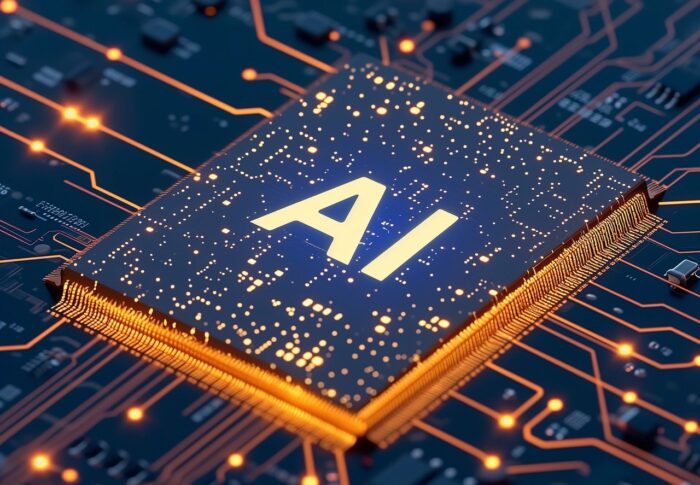
The Ethics of AI: Navigating the Challenges of Responsible Technology
The rise of Artificial Intelligence (AI) has brought about numerous benefits to society, including increased efficiency, improved accuracy, and enhanced capabilities. However, these advancements have also brought along ethical issues, raising concerns about the responsible use of AI. The rapid pace of technological development has made it challenging for ethical frameworks to keep up with the innovations, leaving us to navigate a complex landscape of ethical challenges.
The Question of Responsibility
One of the significant challenges of AI ethics is the question of responsibility. The main reason why responsibility is such a significant challenge in AI ethics is that AI systems are often designed to operate autonomously, with little or no human intervention. This means that the actions and decisions made by AI systems may be difficult to predict, and may even be at odds with the intentions of their designers or operators.Who should be held accountable for the actions of AI? Is it the developers who create the AI, the users who employ it, or the AI itself?
This challenge can be addressed by establishing clear lines of responsibility for the development, deployment, and operation of AI systems. This may involve creating new regulatory frameworks that hold developers and operators accountable for the outcomes of AI systems, as well as establishing ethical guidelines for the development and deployment of AI. A possible approach to addressing the challenge of responsibility is to incorporate transparency and explainability into AI systems. This means designing AI systems that can provide clear explanations for their actions and decisions, and that can be audited and reviewed by human experts.
Emphasizing the importance of human oversight and intervention in the operation of AI systems could also go a long way. This may involve establishing human-in-the-loop systems, in which AI systems work in conjunction with human operators to ensure that outcomes are fair, ethical, and aligned with the intentions of those who design them.
Ultimately, the question of responsibility in AI ethics is a complex and multifaceted challenge that will require ongoing research, dialogue, and collaboration among experts in AI, ethics, law, and other fields. By addressing this challenge head-on, we can ensure that the development and deployment of AI systems is aligned with our values and priorities, and that they contribute to a better, more equitable, and more sustainable future for all.
The Question of Bias
Another significant ethical challenge is bias – how to ensure that AI systems are fair and unbiased. AI systems are only as good as the data they are trained on, as such, if a biased data is used to train AI, then the resulting AI will also be biased. If the data is not representative of the population as a whole, then the system will be biased towards the groups that are overrepresented in the data. For example, if a facial recognition system is trained on data that is primarily composed of white faces, it will not be as accurate when trying to recognize people of color. This is because the system has not been exposed to enough diverse data to learn how to accurately recognize different types of faces. This bias can have negative consequences, such as leading to unfair treatment or discrimination.
Another way that bias can be introduced into AI systems is at the level of the design of the system itself. If the algorithm used in the system is biased, then the results produced by the system will also be biased. This can happen when the designers of the AI system do not take into account the potential biases that may be present in the data or the algorithm.
Addressing bias in AI systems can be very challenging and requires a multidisciplinary approach. One of the first steps is identifying if and when bias is present. Bias can be difficult to detect, especially when it is subtle or hidden. It is also challenging to address bias once it has been identified, as it may require significant changes to the data or the algorithm used in the system. Addressing bias should include input from experts in computer science, data science, ethics, and social science. It also requires a commitment from the companies and organizations that are developing and deploying AI systems to prioritize fairness and diversity in their systems.
The Question of Privacy
One other significant challenge of AI ethics is privacy. AI technologies have the potential to collect and analyze vast amounts of personal data, which can pose a threat to individual privacy. AI systems may have access to sensitive information, such as names, addresses, health records, financial data, and other personal information, including social security numbers. Moreover, AI systems can also generate new data through their interactions with individuals, creating a vast repository of personal information that can be used for various purposes such as identity theft, fraud, or other malicious purposes.
To address these challenges, it is essential to develop regulations and standards that protect individual privacy while also enabling the development and deployment of AI systems. This can include the implementation of data protection laws for the collection, storage, and use of personal data. Moreover, it is crucial to promote transparency and accountability in the development and deployment of AI systems. Organizations that develop or deploy AI systems should be transparent about how they collect and use data, as well as how their algorithms operate. Additionally, there must be mechanisms in place to hold organizations accountable for the decisions made by their AI systems.
Navigating the Challenges of Responsible Technology
To navigate the ethical challenges of AI, we need to develop frameworks that promote responsible and ethical use. One approach is to establish clear ethical guidelines and regulations that govern the development and use of AI. These guidelines should address issues such as responsibility, bias, and privacy, among others. The European Union’s General Data Protection Regulation (GDPR) is an example of a comprehensive set of regulations that address privacy concerns.
Another approach is to promote transparency and accountability in AI development and use. This includes ensuring that AI systems are explainable and that developers and users can understand how decisions are made. It also involves establishing mechanisms for accountability in cases where AI systems cause harm or are used inappropriately.
Education and awareness are also essential for navigating the ethical challenges of AI. Educating developers, users, and the general public about AI and its ethical implications can help promote responsible and ethical use. This can include providing training on AI ethics and promoting ethical decision-making.
AI has the potential to revolutionize many aspects of our lives, including healthcare. However, to fully realize the benefits of AI, we need to navigate the ethical challenges of responsible technology. This involves establishing ethical guidelines and regulations, promoting transparency and accountability, and promoting education and awareness. By doing so, we can ensure that AI is used responsibly.




